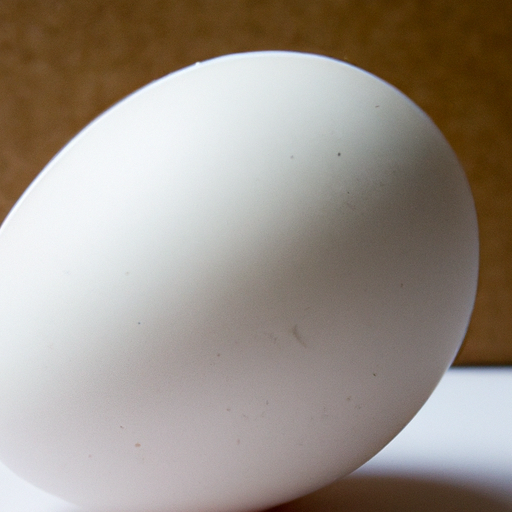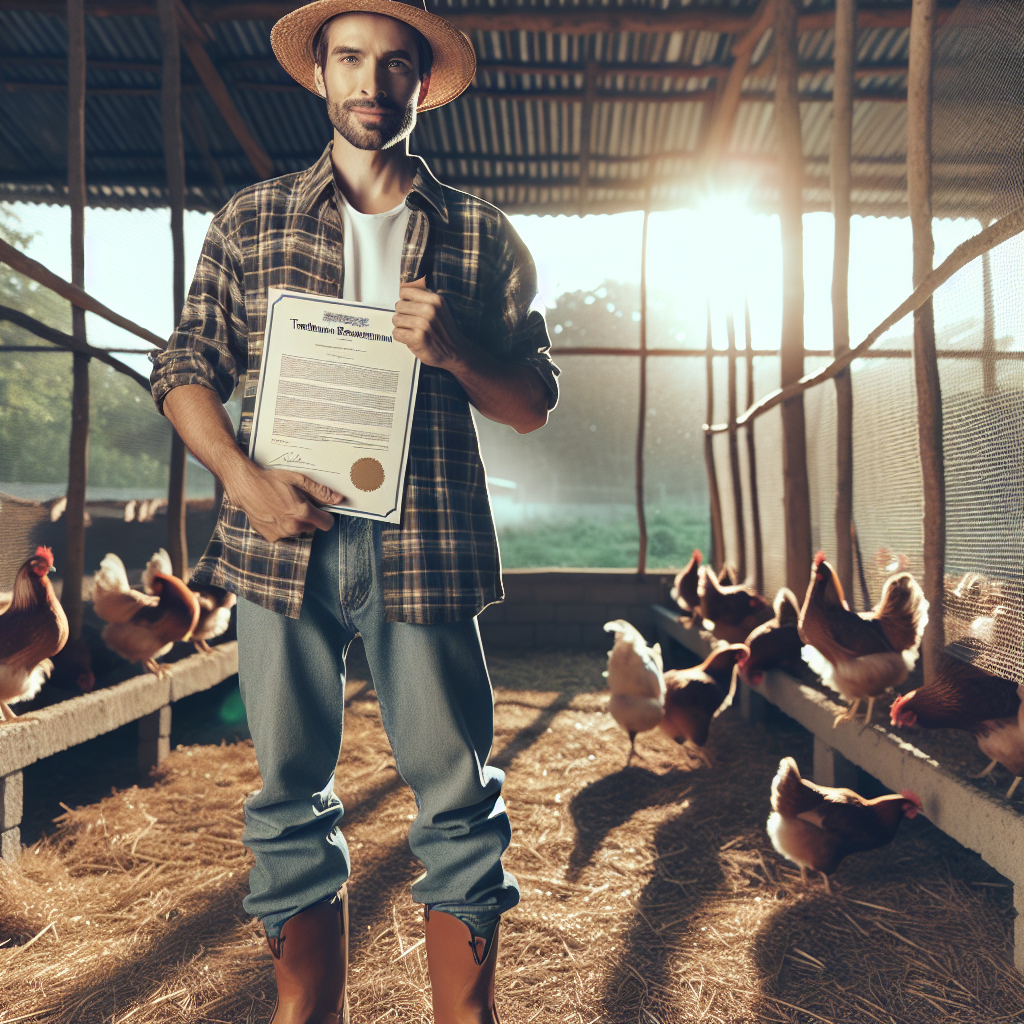Are you thinking of starting a poultry-based business? Before you embark on this exciting entrepreneurial journey, it’s important to understand the taxation considerations that come along with it. From income tax to sales tax, there are various aspects to consider when it comes to taxes for your poultry business. In this article, we will explore the key points you need to know to navigate the complexities of taxation in the poultry industry. So, grab a cup of coffee, sit back, and let’s delve into the world of taxation considerations for a poultry-based business.
Legal Structure
When starting a poultry-based business, it is essential to consider the legal structure that best suits your needs. Here are four common legal structures to consider:
Sole Proprietorship
A sole proprietorship is the simplest and most common legal structure for small businesses. As a sole proprietor, you have complete control over your business, including its profits and losses. However, it is important to note that you are personally liable for any debts or obligations of the business.
Partnership
In a partnership, two or more individuals share the ownership and management responsibilities of the business. Partnerships can be general partnerships, where all partners share equal liability, or limited partnerships, where some partners have limited liability. It is crucial to have a well-drafted partnership agreement that outlines each partner’s roles, responsibilities, and share of profits and losses.
Limited Liability Company (LLC)
A limited liability company (LLC) combines the pass-through taxation of a partnership or sole proprietorship with the limited liability protection of a corporation. As an LLC owner, called a member, your personal assets are protected from any business debts or liabilities. LLCs also offer flexibility in terms of management and distribution of profits.
Corporation
A corporation is a separate legal entity from its owners, known as shareholders. It offers the most protection to its owners from personal liability, as the corporation is solely responsible for any debts or obligations. Corporations are subject to double taxation, as both the corporation’s profits and the shareholders’ dividends are taxed. There are two types of corporations: C corporations and S corporations, which have different tax implications.
Business Expenses
Running a poultry-based business entails various expenses that are crucial for its successful operation. Here are some common business expenses to consider:
Feed and Supplies
Feed and supplies are primary expenses for poultry businesses. This includes the cost of purchasing poultry feed, medication, bedding materials, and any other supplies needed to raise healthy and productive poultry.
Equipment and Facilities
Investing in equipment such as coops, cages, incubators, heating systems, and ventilation systems is essential for your poultry business. Additionally, you may need to lease or purchase facilities for housing your poultry, such as barns or sheds.
Labor Costs
Labor costs include the wages and salaries paid to your employees or hired help. When calculating labor costs, consider the number of employees, their respective roles, and any benefits, such as health insurance or retirement plans.
Insurance
Insurance is an essential expense for any business, including poultry-based businesses. General liability insurance can protect you from claims arising from accidents or injuries on your premises, while property insurance can cover damage or loss to your poultry, equipment, or facilities.
Advertising and Marketing
Promoting your poultry products is essential for generating sales and attracting customers. Advertising and marketing expenses include creating websites, online advertisements, brochures, and participating in trade shows or events.
Utilities
Utilities, such as electricity, water, and heating or cooling systems, are necessary for maintaining the proper environment for your poultry. It is important to budget for these ongoing expenses.
Transportation
Transportation costs involve delivering your poultry products to customers or transporting them to processing facilities. This can include fuel costs, vehicle maintenance, and any other expenses related to transportation.
Miscellaneous Expenses
Miscellaneous expenses encompass any other costs specific to your poultry business that are not covered by the categories above. These may include licensing fees, permits, professional consulting services, or ongoing training for you and your employees.
Tax Deductions
Understanding tax deductions is crucial for maximizing your poultry-based business’s financial benefits. Here are some common tax deductions that may apply to your business:
Cost of Goods Sold (COGS)
The cost of goods sold refers to the direct costs associated with producing or acquiring the products you sell. For a poultry business, this would include expenses related to raising and caring for the poultry, such as feed costs and veterinary expenses.
Business Expenses
Business expenses incurred in the ordinary course of operating your poultry business can generally be deducted. This includes expenses for feed and supplies, equipment and facilities, labor costs, insurance, advertising and marketing, utilities, transportation, and other miscellaneous expenses.
Employee Wages
If you have employees, you can deduct their wages as a business expense. This includes salaries, bonuses, payroll taxes, and any benefits you provide, such as health insurance or retirement plans.
Insurance Premiums
The premiums you pay for insurance coverage, such as general liability insurance or property insurance, are typically deductible expenses for your poultry business.
Depreciation of Assets
When you purchase assets, such as equipment or facilities, their value typically decreases over time due to wear and tear. You can deduct a portion of their cost each year as depreciation.
Start-up Expenses
If you are in the early stages of your poultry business, you may be able to deduct certain start-up expenses. These can include costs for market research, advertising, employee training, and professional fees.
Business Mileage
If you use your vehicle for business purposes, you may be able to deduct the mileage or actual expenses related to that use. This can include mileage for delivering poultry products or traveling to meet with suppliers or customers.
Employee Taxes
As an employer in a poultry-based business, it is essential to understand and fulfill your tax obligations related to your employees. Here are some key employee taxes to consider:
Federal Income Tax Withholding
As an employer, you are responsible for withholding federal income tax from your employees’ wages and remitting it to the Internal Revenue Service (IRS) on their behalf.
Social Security and Medicare (FICA) Taxes
Employers are required to withhold Social Security and Medicare taxes, also known as FICA taxes, from their employees’ wages. Additionally, employers must make a matching contribution for these taxes.
Unemployment Taxes
Employers are generally required to pay federal and state unemployment taxes. These taxes provide benefits to employees who become unemployed through no fault of their own. The specific requirements and rates vary by state.
Sales Tax
If your poultry business involves selling live poultry or processed poultry products, you may be subject to sales tax. Here are some considerations for sales tax:
Sales of Live Poultry
Depending on your state’s regulations, sales of live poultry may be subject to sales tax. It is important to familiarize yourself with the applicable tax rates and reporting requirements to ensure compliance.
Sales of Processed Poultry Products
Sales of processed poultry products, such as packaged chicken or turkey, may also be subject to sales tax. Again, understanding the specific regulations in your state is crucial for compliance.
Exemptions and Exclusions
Certain states provide exemptions or exclusions from sales tax for specific types of poultry products or agricultural sales. Researching your state’s regulations can help you determine if any exemptions or exclusions apply to your business.
Income Tax
Income tax is a significant consideration for any business, including poultry-based businesses. Here are some important aspects to consider regarding income tax:
Reporting Income
You are required to report the income earned by your poultry business on your income tax return. This includes income from the sale of poultry products, as well as any other sources of revenue related to your business.
Self-Employment Tax
If you operate your poultry business as a sole proprietorship, partnership, or LLC, you may be subject to self-employment tax. This tax covers your contributions to Social Security and Medicare, similar to the FICA taxes paid by employers and employees.
Quarterly Estimated Tax Payments
If you anticipate owing a certain amount of income tax for the year, you may be required to make quarterly estimated tax payments to the IRS. These payments help you avoid underpayment penalties and ensure that your tax obligations are met throughout the year.
Tax Identification Numbers (TIN)
Your poultry business may require a tax identification number, such as an Employer Identification Number (EIN) or a Social Security Number (SSN). These numbers are used for tax reporting purposes and can be obtained from the IRS.
Record Keeping
Maintaining accurate and organized records is essential for various aspects of your poultry-based business, including tax compliance. Here are some important records to keep:
Accounting Software
Investing in accounting software can make record-keeping more efficient. It allows you to track income and expenses, generate financial reports, and easily prepare your tax records.
Bank Statements
Keep copies of your bank statements, as they provide a record of your business transactions, including deposits and withdrawals.
Receipts and Invoices
Keep copies of all receipts and invoices related to your poultry business expenses. These documents serve as proof of your business expenses and are necessary for preparing your tax returns.
Payroll Records
Maintain detailed records of your employees’ wages, tax withholdings, and any benefits provided. These records are crucial for accurately reporting employee wages and fulfilling your tax obligations.
Tax Returns and Filings
Keep copies of your filed tax returns, as well as any related schedules or supporting documents. These records are required in case of an audit or if you need to reference your tax history.
Tax Deadlines
Meeting tax deadlines is essential to avoid penalties and maintain compliance with federal and state tax laws. Here are key tax deadlines to keep in mind:
Quarterly Estimated Tax Payments
If you are required to make quarterly estimated tax payments, the deadlines are typically April 15th, June 15th, September 15th, and January 15th of each year. Be sure to understand your obligations and submit your payments on time.
Filing Income Tax Returns
For most poultry businesses, the deadline to file income tax returns is generally April 15th of each year. However, the exact deadline may vary depending on weekends, holidays, or extensions granted by the IRS.
Employer Reporting Deadlines
Employers have specific reporting deadlines for various tax forms, such as Form W-2 for employee wages and Form 1099-MISC for certain non-employee compensation. These deadlines typically fall in January or February of each year.
Tax Payment Deadlines
If you owe income tax, quarterly estimated tax payments, or other tax liabilities, it is crucial to pay them by the respective deadlines to avoid penalties and interest charges.
Tax Credits and Incentives
There are various tax credits and incentives available that can help reduce your poultry business’s tax liability. Here are some examples to be aware of:
Small Business Health Care Tax Credit
If you provide health insurance to your employees, you may be eligible for the Small Business Health Care Tax Credit. This credit can offset a portion of the premiums you pay, making it more affordable to provide health coverage.
Research and Development Tax Credit
If your poultry business engages in qualifying research and development activities, you may be eligible for the Research and Development Tax Credit. This credit aims to incentivize innovation and can help reduce your tax liability.
Renewable Energy Investment Tax Credit
If you invest in renewable energy systems, such as solar panels or wind turbines, you may be eligible for the Renewable Energy Investment Tax Credit. This credit encourages the use of clean energy and can provide substantial tax savings.
State and Local Tax Incentives
Various state and local governments offer tax incentives to businesses, including those in the poultry industry. These incentives can range from tax credits to exemptions or reduced tax rates. Researching the specific incentives in your area can uncover potential opportunities for your business.
Engaging Tax Professionals
Navigating the complexities of poultry-based business taxation can be challenging. Engaging a tax professional can provide valuable expertise and ensure compliance with tax laws. Here are three types of tax professionals you may consider:
Certified Public Accountant (CPA)
A Certified Public Accountant (CPA) is a licensed professional who specializes in accounting and taxation. They can provide tax planning advice, prepare your tax returns, and help you navigate complex tax situations.
Enrolled Agent (EA)
An Enrolled Agent (EA) is a tax professional licensed by the IRS. EAs are authorized to represent taxpayers before the IRS and can assist with tax planning, preparation, and representation in tax matters.
Tax Attorney
A tax attorney specializes in tax law and can provide legal advice and representation in complex tax matters. They can help with tax planning, dispute resolution, and ensure your business complies with tax laws.
Benefits of Hiring a Tax Professional
Hiring a tax professional offers several benefits for your poultry business. They possess specialized knowledge and expertise, saving you time and effort. They can also help minimize tax liabilities, identify potential deductions and credits, and ensure accurate tax filing. Additionally, having a tax professional by your side can provide peace of mind, knowing that your business is in compliance with tax laws.
In conclusion, as you embark on your poultry-based business journey, understanding the taxation considerations is crucial. From choosing the right legal structure and managing business expenses to complying with tax obligations and maximizing deductions, there are several factors to consider. Taking the time to familiarize yourself with these considerations and engaging tax professionals when needed will help ensure your business’s financial success and compliance with tax laws.




